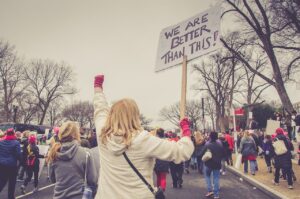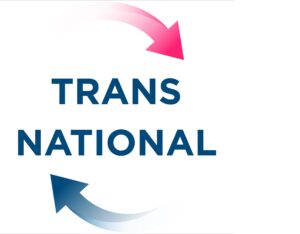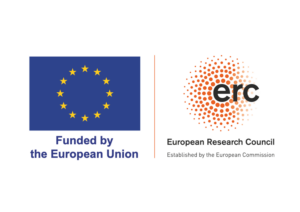
TRANSNATIONAL seeks to explain polarization in Western societies on immigration, international governance, climate change. One side embraces open societies, cultural diversity, and international governance; the other considers these as a threat to their national community and their way of life. We describe this as a transnational cleavage which has its roots in an information revolution that started in the 1960s and picked up steam from the 1990s. We believe it signifies a critical juncture in Western democracies no less decisive than previous junctures detected by Lipset and Rokkan in their 1967 classic.
Beyond the effect of individual demographics on political attitudes, little is known about how social interaction shapes affective polarization. We combine insights from cleavage theory, identity theory, and social networks to examine the individual-social nexus in Europe and the United States by means of surveys, natural experiments, and interviews. This research is funded by a five-year advanced ERC grant #885026 to Liesbet Hooghe (2021-2025). Project leaders are Liesbet Hooghe and Gary Marks.
Please scroll down to find the PEOPLE, EVENTS, and PAPERS connected with TRANSNATIONAL.
People
Research team
Liesbet Hooghe, Research Professor, EUI
Gary Marks, Research Professor, EUI
Julia Schulte-Cloos, Postdoctoral Researcher, EUI – recipient of the CIVICA research excellence tours 2022 award
Project manager
Jo Wielgo
Visiting Fellows
Gabriele Magni, Professor, Loyola Marimount University (May-July 2023)
Nicoló Conti, Professor, Unitelma Sapienza University, Rome (2022-2023)
Ashley A. Anderson, Professor, UNC Chapel Hill (June 2022)
Christina Zuber, Professor, University of Konstanz (April, June 2022)
Ruth Dassonneville, University of Montreal (2021-2022)
Pieter de Wilde, Norwegian University of Science and Technology, Trondheim (Nov 2021)
Transnational ERC Associates
Jeremy Ferwerda, Professor, Dartmouth College
Jonne Kamphorst, PhD candidate, European University Institute
Matthew Loveless, Professor, University of Bologna
Gabriele Magni, Professor, Loyola Marymount UniversityJulia Schulte-Cloos, Professor, University of Marburg
Stephanie N. Shady, Professor, The American University of Sharjah
Events
Invited speakers
- Frank Baumgartner and Isaac Unah, UNC-Chapel Hill, 22 May, 2023: “Dying Out: How and Why the Death Penalty is Finally Disappearing from America”
- Christina Zuber, University of Konstanz, 14 June, 2022: “Ideational Legacies and the Politics of Migration in European Minority Regions”
- Christoffer Green-Pedersen, University of Aarhus, 31 May, 2022: “Understanding the conflict of conflicts. What can we learn from the Irish case?”
Conferences
- PhD. Workshop: The comparative politics of Europe, EUI, June 27-28 2022.
- Lessons of Postfunctionalism, EUI, June 9-10, 2022.
- Theories of the contemporary divide in Western societies, EUI, Dec 15-17, 2021.
Papers
Work in progress
- Liesbet Hooghe, Gary Marks, and Jonne Kamphorst. “Field of education and the transnational cleavage.” Working paper.
- Julia Schulte-Cloos. “Familiarity with the political role of ethnic minorities reduces voter bias against candidates of immigrant origin.” Working paper.
- Liesbet Hooghe, Gary Marks, Stephanie Shady. “Division on the Christian Right in the US: Conservative pastors and the use of force.” Under review.
- Ruth Dassonneville, Liesbet Hooghe, and Gary Marks. “Transformation of the political space: A citizens’ perspective.” Under review.
- Julia Schulte-Cloos and Veronica Anghel. “Right-wing authoritarian attitudes, fast-paced decision-making, and misinformation about the COVID-19 vaccines.” Under review.
2022
- Jeremy Ferwerda, Gabriele Magni, Liesbet Hooghe and Gary Marks. 2022. “How crises shape circles of solidarity: Evidence from the COVID pandemic in Italy.” Comparative Political Studies. Forthcoming.
- Tobias Lenz, Besir Ceka, Liesbet Hooghe, Gary Marks, Alexander Burilkov. 2022. “Discovering Cooperation: Endogenous Change in International Organizations.” Review of International Organizations. Forthcoming.
- Liesbet Hooghe and Gary Marks. 2022. “Differentiation in the European Union and Beyond.” European Union Politics, 24(1), (online first, Sept 2022).
- Veronica Anghel and Julia Schulte-Cloos. 2022. “COVID-19 related anxieties do not decrease support for liberal democracy.” European Journal of Political Research, (online first, September 2022).
- Liesbet Hooghe and Gary Marks. 2022. “The social roots of the transnational cleavage: Education, occupation, and sex.” RSC Working Paper 2022/53 (July 2022).
- Cecilia Martinez-Gallardo, Nico de la Cerda, Jonathan Hartlyn, Ryan Bakker, Liesbet Hooghe, and Gary Marks. 2022. “Revisiting party system structuration in Latin America and Europe: Economic and socio-cultural dimensions.” Party Politics, (online first, June 2022).
- Gary Marks, Liesbet Hooghe, David Attewell, Jan Rovny, and Marco Steenbergen. 2022. “The Social Bases of Political Parties: A New Measure and Survey,” British Journal of Political Science (online first, Feb 2022).
- Jan Rovny, Ryan Bakker, Liesbet Hooghe, Seth Jolly, Gary Marks, Jonathan Polk, Marco Steenbergen, Milada Anna Vachudova. 2022. “Contesting Covid: The Ideological Bases of Partisan Responses to the Covid-19 Pandemic.” European Journal of Political Research 61(4): 1155-64.
- Seth Jolly, Ryan Bakker, Liesbet Hooghe, Gary Marks, Jonathan Polk, Jan Rovny, Marco Steenbergen, Milada Anna Vachudova. 2022. “Chapel Expert Survey Trend File, 1999-2019.” Electoral Studies, 75(Feb 2022) (online first Nov 2021).
2021
- Liesbet Hooghe and Gary Marks. 2021. “Multilevel Governance and the Coordination Dilemma.” In Arthur Benz, Jorg Broschek, and Markus Lederer, eds. A Research Agenda for Multilevel Governance, Edgar Elgar, 19-36.
- Gary Marks, Liesbet Hooghe, David Attewell, Jan Rovny. “Cleavage theory.” In Marianne Riddervold, Jarle Trondal and Akasemi Newsome, eds. Handbook on EU Crisis. Palgrave, 173-198.
- Michäel Tatham, Liesbet Hooghe, and Gary Marks. “The Territorial Architecture of Government,” Governance, 34(3): 607-620 (online first April 2021).
This project has received funding from the European Research Council (ERC) under the European Union’s Horizon 2020 research and innovation programme (grant agreement No 864724).


